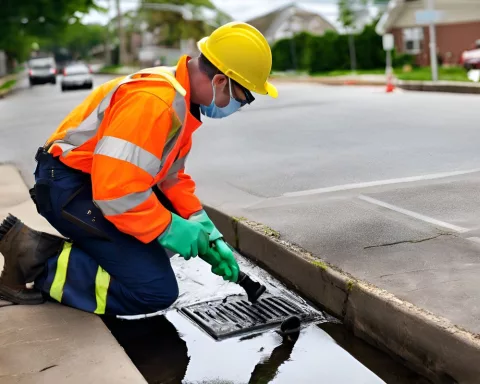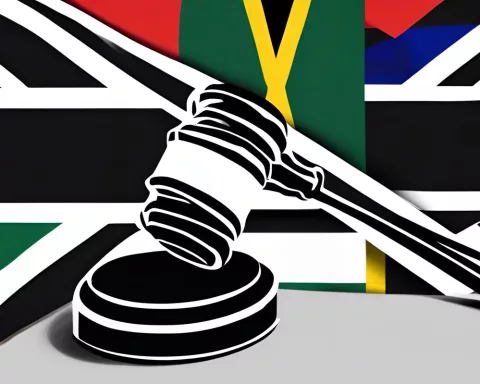Local citizens in Cape Town are working with the Urban Waste Management and Community Services and Health divisions of the local government to turn unlawful waste disposal sites into community spaces. By introducing native plants and professional landscaping, the community takes pride in these once-disregarded areas, improving aesthetics, promoting community health, environmental conservation, and civic pride. Residents and community groups are encouraged to join the campaign against illegal dumping.
A Community-Driven Solution to Illegal Dumping: The Urban Waste Management (UWM) and Community Services and Health (CS&H) divisions of Cape Town’s local government have partnered with local citizens to turn unlawful waste disposal sites into community spaces. By cleaning up these sites, introducing native plants, and executing professional landscaping, the community can take pride in these once-disregarded areas. This initiative not only improves aesthetics but also promotes community health, environmental conservation, and civic pride. Residents and community groups are invited to join the campaign against illegal dumping.
A Community-Driven Solution to Illegal Dumping
In a shining example of community engagement and collaborative action, two divisions of Cape Town’s local government joined forces with local citizens to tackle an ongoing problem: unlawful waste disposal. The Urban Waste Management (UWM) and Community Services and Health (CS&H) divisions have crafted a unique strategy to turn disregarded, trash-cluttered spaces into appealing community spaces.
The city of Cape Town has been grappling with the issue of illicit dumping for years. Despite spending upwards of R100 million annually to rid nearly 3000 locations of waste, the challenge remains relentless. After the city clears an area, the trash inevitably reappears, making the problem appear almost unbeatable.
A Fresh Approach to Waste Management
In response to this recurring issue, the UWM Division has started a novel partnership with the Recreation and Parks Department under the CS&H Division. Their innovative solution? Transform these repeated dumping sites into charming, well-kept areas that the neighborhood can take pride in.
This cooperative initiative was first launched in two prevalent dumping areas – Milton Street in Goodwood and Orange Street in Ruyterwacht. With the invaluable support of local inhabitants and neighborhood watch groups, these zones were significantly revamped. The previously waste-strewn areas were cleaned up, native plants were introduced, and professional landscaping was executed.
The principle guiding this venture is as straightforward as it is potent. Alderman Grant Twigg, Mayoral Committee Member for Urban Waste Management, noted the phenomenon, “Unlawfully dumped waste often serves as a beacon for more waste. Individuals are far more inclined to add to an existing pile of trash than they are to litter a clean land where respectable citizens gather. That’s why making over dumping hotspots can be extremely effective.”
Engaging the Community and Encouraging Civic Pride
While the city is enthusiastic about discovering unique solutions to the dumping hotspots, constraints in resources and budget pose certain challenges. Consequently, the involvement of the community is vital. As such, Cape Town’s authorities are extending an invitation to residents and community groups to join the campaign against unlawful dumping.
The mission to eradicate illegal dumping isn’t solely centered around aesthetics. It’s also about community health, environmental conservation, and civic pride. Alderman Twigg captures the essence of this initiative eloquently: “Since illegal dumping attracts more of the same, it’s crucial that the residents in the most affected communities make an additional effort to use the services provided by the City for waste disposal. Together, we can achieve more.”
In an effort to maintain the cleanliness of the city, Cape Town offers a weekly garbage collection service to both formal and recognized informal households. This inventive strategy of transforming dumping hotspots into attractive, functional spaces demonstrates the city’s commitment to its residents and the environment. It goes to show that even the most daunting problems can spark innovation, collaboration, and a strong sense of community spirit.
What is the initiative to combat illegal dumping in Cape Town?
The Urban Waste Management and Community Services and Health divisions of Cape Town’s local government have partnered with local citizens to turn unlawful waste disposal sites into community spaces. By cleaning up the sites, introducing native plants, and executing professional landscaping, the community takes pride in these once-disregarded areas.
What are the benefits of this initiative?
This initiative not only improves aesthetics but also promotes community health, environmental conservation, and civic pride. The involvement of the community is crucial in eradicating illegal dumping, and residents and community groups are encouraged to join the campaign against it.
How has the community been involved in this initiative?
The involvement of the community is vital. Local inhabitants and neighborhood watch groups have provided invaluable support in cleaning up the dumping sites, introducing native plants, and executing professional landscaping. Cape Town’s authorities are extending an invitation to residents and community groups to join the campaign against unlawful dumping.
What is the importance of community involvement in the initiative?
Constraints in resources and budget pose certain challenges, making the involvement of the community vital. Residents and community groups can use services provided by the city for waste disposal, helping to maintain the cleanliness of the city. Together, the community can achieve more in combating illegal dumping.
What is the principle guiding this initiative?
The principle guiding this venture is straightforward and potent. Unlawfully dumped waste often serves as a beacon for more waste. Individuals are far more inclined to add to an existing pile of trash than they are to litter a clean land where respectable citizens gather. That’s why making over dumping hotspots can be extremely effective.
What other efforts has Cape Town made to combat illegal dumping?
Cape Town offers a weekly garbage collection service to both formal and recognized informal households in an effort to maintain the cleanliness of the city. The initiative to transform dumping hotspots into attractive, functional spaces demonstrates the city’s commitment to its residents and the environment.








